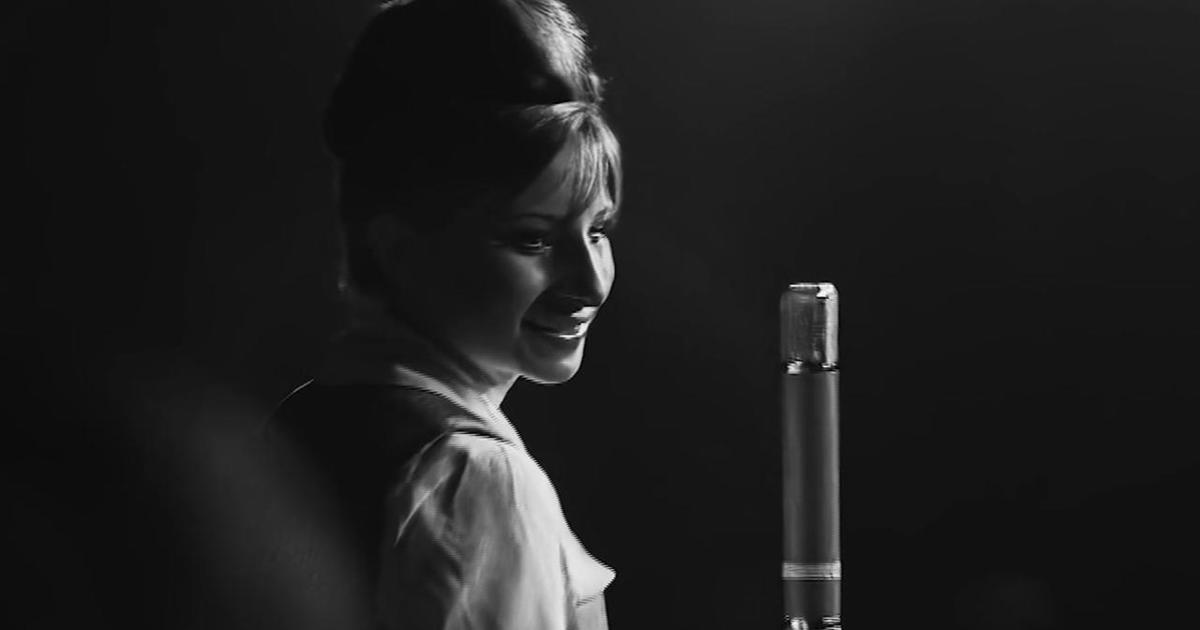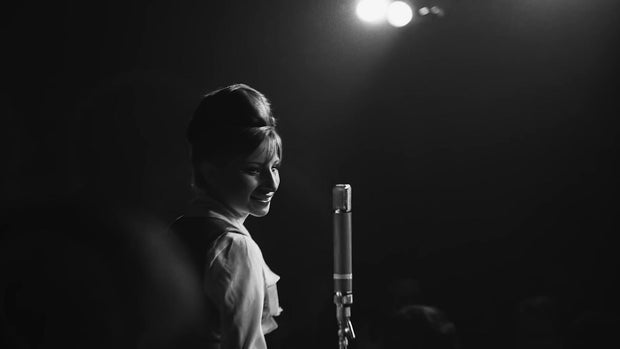Everybody’s gotta start somewhere. For nineteen-year-old Barbra Streisand, that somewhere was New York’s Bon Soir nightclub. In her memoir, “My Name Is Barbra,” Streisand writes: “The Bon Soir was a typical Greenwich Village nightclub … small, dark, and you had to walk down a flight of stairs to get in. In fact, it was so dark that the waiters carried little flashlights.”
It was, said James Gavin, who wrote the book about New York’s cabaret scene in the 1960s, “this exclusive setting that you had to kind of be in the know in order to find your way to. Everybody there was joining in a shared experience of discovery – that was part of the thrill of seeing the likes of Barbra Streisand in one of these clubs, because you knew that you were in on something fabulous that was unfolding before your eyes.”
Columbia Records
The clubs were like little laboratories where some of the most influential figures in American popular culture first found their voices. These places, said Gavin, were havens for misfits. “People who did not fit in anywhere else: Eartha Kitt, Phyllis Diller, Johnny Mathis, Woody Allen. Carol Burnett is another example of somebody who found an adoring audience, and then very quickly went on to huge things. But the ultimate example of that kind of performer is Barbra Streisand.”
Here was a volcano of talent: beguiling … off-beat … and explosive.
To listen to the album “Barbra Streisand: Live at the Bon Soir” click on the embed below (Free Spotify registration required to hear the tracks in full):
Wesley Morris, New York Times critic at large, wrote about the 1962 live album Streisand recorded at the Bon Soir, and released only last year. “It’s Technicolor, it’s kaleidoscopes, it’s the 4th of July – the clarity of the voice, the kind of Borscht Belt comic timing. There’s just so much happening in that singing. This sounds like somebody who’s been around for years and years,” he said. “I think there’s something about being in a small space, and you are basically watching this one person magnetize a tiny room. So, the energy that we’re talking about concentrated in that space is wild. And to then just end the show and shoot everybody back into the world?”
But for millions of Americans, the first exposure to the full Streisand experience came with her five CBS television specials – the first, “My Name Is Barbra,” was broadcast on April 28, 1965.
On these specials she did things her way. “They’re kind of like music videos,” said Morris. “They’re part concert, they’re part video.”
In the first special she traipses through the Bergdorf Goodman department store. “That whole passage in the first special where she’s running through Bergdorf’s, I mean, that’s something Cyndi Lauper would have done, right? Gaga would have done a whole bit in a Bergdorf’s – trying on hats, the fur coat bit.”
Barbra Streisand sings “Second Hand Rose” in her 1965 TV special “My Name Is Barbra”:
These specials bucked convention, and not just because in one of them Streisand soft-shoes with penguins. Rocca said, “To be 23 years old and have an hour-long special on network television in those days, and to not have any guests, no one to kind of buffer you – she could have called in, I don’t know, Bob Hope or somebody to come in there, someone she could lean on. But she didn’t do that.”
“No, she didn’t. She just knew how powerful she was,” said Stephen Holden, a retired New York Times music and film critic who wrote about Streisand for decades. “There was no one else like her, and there isn’t anyone else like her now.”
“In those early performances, it doesn’t seem like she’s asking for the audience’s approval,” said Rocca.
“No,” Holden laughed. “She’s demanding it!”
The specials were ratings hits. Her first won five Emmys. Accepting the award, she said, “I couldn’t believe the amount of people that watch you in one given amount of time – let’s say an hour, which was my special – and I figured it out, I’d have to work in the theater in ‘Funny Girl’ 58 years to reach the same amount of people!”
Streisand’s stardom was all the more surprising considering when it happened. In 1965, after The Beatles’ invasion, Streisand was singing songs primarily from the 1920s, ’30s, and ’40s. “This is an important point,” said Morris. “The Beatles are happening. And one of the most popular acts in America is this chick from Brooklyn singing Tin Pan Alley and Great American Songbook tunes.”
Of course, it was what she was doing with these songs that made them seem brand new. “She is so good at that, taking you on a journey that is obviously emotional and obviously musical,” said Morris.
Behold her rendition of “Cry Me a River” during her Central Park concert TV special in 1968, in which she channels the jilted lover whose ex has come crawling back:
Morris said, “It’s the peaks and valleys of the great singers who are able to go up and go down, the EKG of it. It’s your spirit responding to somebody else’s spirit. … That was the experience of watching her.”
The word icon is thrown around a lot these days. But Barbra Streisand is an icon.
Watch Barbra Streisand perform “Starting Here, Starting Now,” on her 1966 special, “Color Me Barbra”:
For more info:
Story produced by Kay Lim. Editor: Mike Levine.
See also:


